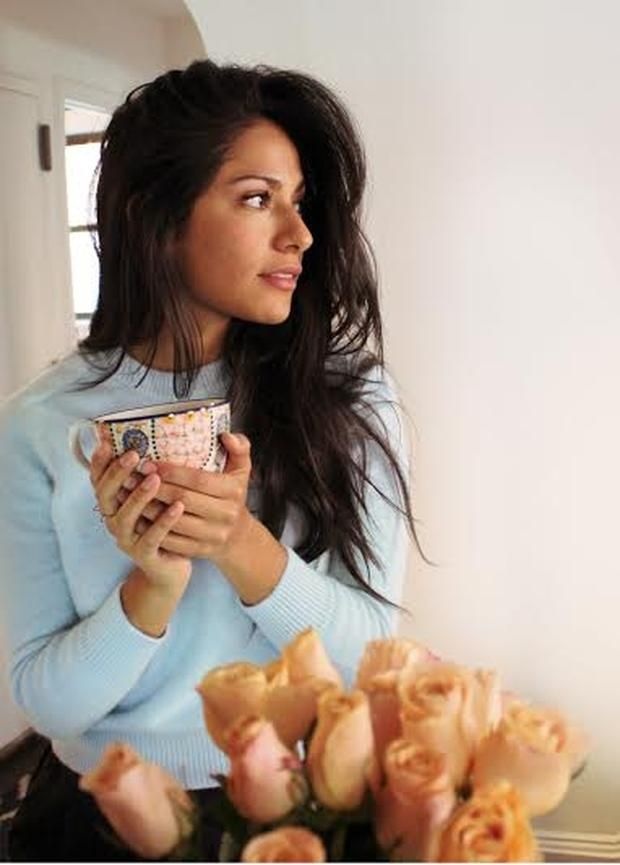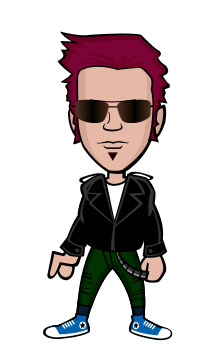
Sometimes, the hardest thing to do in the digital age is be human.
For Azita Ardakani, CEO of digital marketing agency Lovesocial, the human lens is the crux of much of what she does, and yet, an idea that she always has to explain to clients.
"I don't know when it happened -- probably with the birth of advertising, but at some point brands stopped communicating like human beings, which is really like where both innovation and creativity die," Ardakani said.
To get this idea across to brands, Lovesocial employs what they call the "grain of truth" process.
"It asks questions that it almost feels like a therapist would ask," she said. Those questions include: "Why do you exist?" And "who would care if you ceased to exist?"
Instead of triggering an existential crisis, these questions help clients understand the value of speaking to their core essence, she said, and how they communicate that to their audiences.
It might not be surprising that Ardakani has a degree in sociology. She grew up in Vancouver, Canada and went to Simon Fraser University for her bachelor's.
In 2009, she had the chance to work on a project called Summit on the Summit with the United Nations, which centered around the global clean water crisis. What was initially a consulting role turned into more of a manager role for the full project. Summit on the Summit became her first client.
Not long after, she met Todd Moscowitz, who was the CEO of Warner Records, and he invested in her to start her agency.
Since 2010, Lovesocial has worked with clients from NPR and Michael Kors to Tribeca Film Festival and Global Alliance in Improved Nutrition.
In 2013, Lovesocial, originally based in Vancouver, opened an office in New York's East Village.
Part of staying human is working with initiatives that aren't strictly commercial. Recently, Lovesocial worked with Unlock Iran, an initiative from the Iran Human Rights Documentation Center to draw attention to people imprisoned in Iran for their "beliefs, lifestyle, or profession," according to the website, or the way Ardakani put it: "the very people that here would be getting awards and would be having interviews like this one, but are in prison in Iran today."
A piece of the campaign included a website where users could look at the scenario of being put in prison -- users can click on a prisoner, like 34-year-old Bahareh Hedayat, a feminist and student activist from Tehran University who is serving nine and a half years in prison. Hedayat has a timeline that traces who she is and why she was put in prison, including pictures and videos.
"It played on everything from my love of technology innovation to kind of a theatrical approach and multimedia explanation of how you can tell a complex story with a very tangible outcome, which was reviewing the role of the UN Special Rapporteur, that we successfully did," she said.
It was also an important project for Ardakani because she was born in Iran.
"Starting my company is a gift and an honor, and not something I would have been able to do if I'd stayed in the country I was born," she said.
Though, there are dark sides here too. Lovesocial worked with Gasland, a 2010 documentary on fracking. The night it aired on HBO, she was the creation of numerous social media bots, created to disparage the documentary.
"It really showed the power of social and what could potentially happen if social tools were used by those who didn't have the community's best interest in mind, and how much power one movement can have using the very same tools a giant multi-billion dollar conglomerate can have," she said.
The shady side of Twitter aside, Ardakani's day-to-day tends to be more tame. She prefers to take care of her "busy work" like emails and whatnot, by herself, and go into the office later.
It's a part of how she tries to communicate with intention.
"I think it's important to remember that the kind of work that we do actually emits a different kind of energy, and when you're heads down doing email and busy work, that's usually not the most creative extension of yourself," she said.
When she's in the office, she wants to be focused on being collaborative with her team.
What's next for Lovesocial might not be the most telling question to ask Ardakani. Now that Lovesocial's been around for several years, Ardakani's thought a lot about milestones and the times in-between. After all, life usually happens in the in-between -- the micro-interactions with co-workers, the steps taken toward a goal, the time she spends reading for inspiration, the little things that add up to a life that feels fulfilling and perhaps most importantly, human.
"I think it's a reframing exercise for success in our culture and in our society" she said. "It's not finishing your degree that makes you successful, it's not landing the job that gets you there, it's how you treat your fellow colleagues on a daily basis, it's how you were in the process every day and how you interact with people."



